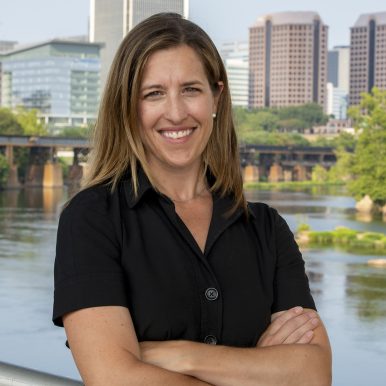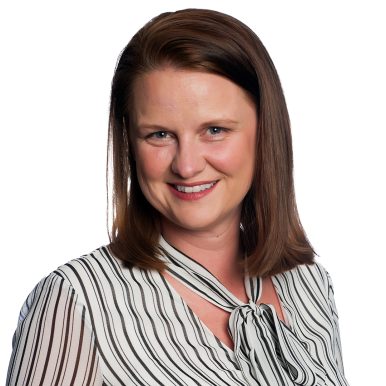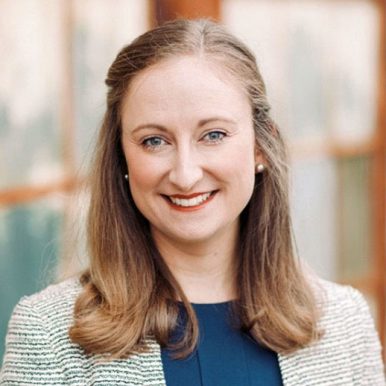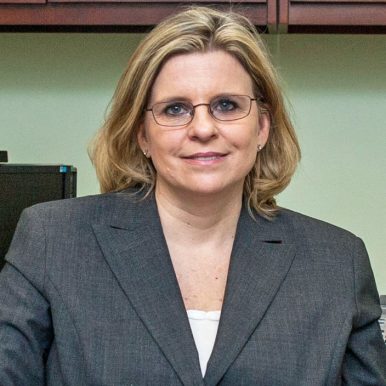Talking telework
Executives discuss remote, in-person and hybrid work decisions

Photo courtesy Shawn Avery

Photo courtesy Shawn Avery
Talking telework
Executives discuss remote, in-person and hybrid work decisions
SHAWN AVERY
President and CEO, Hampton Roads Workforce Council, Norfolk
Prior to the pandemic, did Hampton Roads Workforce Council allow hybrid or remote work?
We allowed employees to occasionally work remotely [due to] extenuating circumstances, such as car trouble, sick family members, etc.
What is your policy today, and how is it working?
Last year, we implemented a 4 ½-day workweek, plus a two-hour-a-week flex-time policy — closing all offices a half day on Friday. [We are] currently evaluating whether additional adjustments are possible.
What challenges do you foresee with remote/hybrid work among your staff?
Some of our positions are based in career centers where they work directly with job seekers. The Workforce Council also has robust, mobile outreach programming where team members work from a variety of places, including libraries and coffee shops. Lastly, the council has multiple administrative teams that work predominantly in nondirect roles. This complexity requires a flexible approach to remote/hybrid scheduling to ensure that the needs of both the community and our employees [can] be met.
What trends are you seeing among partner businesses?
Industries that are more focused on the traditional trades like shipbuilding and ship repair, manufacturing, construction, health care and the hospitality industry cannot typically accommodate a remote workforce. Consequently, those employers have had to increase wage rates to maintain and attract workers. … Ultimately, all industries have had to become more creative in how they onboard and communicate with new employees to remain competitive in their respective fields. From what we are seeing locally, as well as nationally, hybrid scheduling seems to be the new standard.
AMY BRODERICK

Senior vice president, Cushman & Wakefield | Thalhimer, Glen Allen
What trends have you seen in commercial real estate due to remote and hybrid work?
Many companies are able to downsize their office footprint due to remote work, but because their business is still thriving, they don’t necessarily have to cut costs. In these scenarios, they are relocating to higher-quality, more desirable properties.
How has hybrid or remote work changed your day-to-day worklife?
If at all possible, I like to arrange property showings for Tuesday through Thursday. Office buildings tend to be more active and, as a result, more welcoming during the middle of the week. … I’m thinking about how we can improve these properties … to make a return to office more attractive for current tenants, prospective tenants and their employees. … Our office stock in Richmond is dated, and between the costs of construction and the limited rent growth here, a plethora of new construction is not on the horizon. … ‘Spec suites’ are a part of the conversation with many landlords. These are office suites that are move-in ready, with fresh paint and new flooring, and they are sometimes furnished. … In Richmond, a lot of property owners are hesitant [to make improvements] due to the cost. For tenants, many have shortened their timeline to occupancy and so waiting months for permitting and build-out isn’t feasible. … Landlords also need to consider that they may be competing for tenants with a sublease.
Is an office real estate “apocalypse” ahead, as some experts have warned?
I don’t foresee an apocalypse — at least not in Richmond. … There is still more vacancy to come. There are still companies expanding as well, so it will just take some time for the office needs of the community as a whole to balance out.
KATE ELLIS
General manager, Hotel Indigo Old Town Alexandria; Chairperson, Visit Alexandria Board of Governors, Alexandria

How do area hoteliers view the shift to more hybrid and remote work?
Our key is to focus on what is, not what was, and what we see is that hybrid and remote is driving the need for business, government and association managers to meet in small groups to strategize. … So, as Alexandria hoteliers, we’re all focused on how we can share this beautiful small city and make our spaces and amenities fun and exceptional. We want people to come here, collaborate on their best work and then go home and tell their friends how great it was. They’re our secret sales force.
What challenges do hybrid and remote work create for the hospitality industry?
Our biggest challenge has most likely been the compression of the planning window. We get calls from meeting planners sometimes with just a week’s notice. And because workers are now meeting less frequently in person in an office, they need to do more high-value work in our hotels.
How has hybrid work shifted the type of traveler you see, as well as their meeting needs?
We’re seeing more local and regional guests. That’s a function both of hybrid work and a desire to meet in locations that are easy to get to. In terms of the experience, again, it’s as much about what happens outside the meeting room as in. Everyone already has state-of-the-art hybrid meeting space in their office, but what sets an organization apart is a meeting that reflects the personality of your organization, that everyone remembers and authentically connects you to the place in which you meet.
SUZANNE GARDNER

Sales operations manager, Kopis, Blacksburg
How did you become a fully remote worker?
My personal life brought me to the [New River Valley] this summer, which led to a conversation about full-time remote work with [Greenville, South Carolina-based tech company] Kopis. They were incredibly accepting of the idea and were willing to provide anything I needed to get settled and be successful remotely.
What are the positives in working remotely?
I save money by not commuting or eating out for lunch. I don’t feel inclined to work late at the office, and I’m able to manage household chores throughout the day without sacrificing time in the evenings. I also have an incredibly clingy golden retriever who is a fan of midday walks on the Huckleberry Trail.
What are the challenges?
When I have been in the office, organic conversations with colleagues have always been a good way to build trust and rapport. Being remote, I have to make a conscious effort to ensure that I am touching base with my team throughout the day.
How have you connected with the broader community to find connections?
Even before I relocated to Virginia, I was searching online to see where I could get plugged in to meet people and get involved once I got here. … I reached out to several people through the Get2KnowNoke partnership in Roanoke and set up coffee meetings with them to connect and learn more about Roanoke. I got involved with Blacksburg Young Professionals and signed up for happy hours. Lastly, I was able to find the Roanoke-Blacksburg Technical Council and joined their Women in Technology group and signed up for their luncheons and networking events. … People want to see you succeed, especially when they know you are new, have a skillset and want to get plugged in.
REBECCA GELLER
President and CEO, The Geller Law Group, Fairfax County

Why did you establish your law firm as a remote workplace?
While working as an attorney in a large law firm, I saw brilliant women fleeing the profession because firm partners showed utter disregard for attorneys’ lives outside the firm. … As the mom of a baby and a toddler in 2011, I knew there had to be a better way to run a law firm that enabled women to be moms and successful lawyers, but I didn’t see an alternative model in existence, so I created one. … The Geller Law Group has grown to 33 women with 37 children among us, and the average age is 6 years old. Our kids get to grow up seeing their parents do work they care about while also being actively involved parents.
Prior to the pandemic, what were the biggest obstacles with remote work that your firm faced?
We have learned over the years that not everyone is successful in a remote work environment. Some people lack the technical skills, while others are better suited for an in-person team environment. … If someone is not suited for our workstyle, we both typically figure it out quickly.
The firm has offices in Fairfax and Washington, D.C. Why did you establish those offices, and how do your employees use them?
We … have office space for in-person meetings with clients, partners or other firm attorneys and team meetings/events. We also utilize the offices for notary services and document signings with our clients. Our administrative team regularly works in the office to handle tasks requiring a lot of paperwork and filings.
MICHELE LEWANE

CEO, founder and lead attorney, Injured Workers Law Firm, Henrico County
When did your firm go back to the office 100%?
June 2020. … We had some staff alternate days [that] they came in so it wasn’t all at once. … By September 2020, everyone was back in office.
What prompted the firm to go back to the office full time?
Basically, many of us were longing for collaboration so we started going back to the office. We wore masks and were socially distanced. About a third of the positions needed to be in the office since the jobs required organizing and scanning medical documents. One individual had health issues and decided to continue to work from home for over a year.
Did the firm previously allow hybrid or remote work outside of COVID-related closures?
We have one remote worker who lives in Ohio. She has worked remotely for 12 years. She was an awesome employee and when her family moved back to her hometown in Ohio, we couldn’t [bear] to see her leave, so we created a remote position for her that worked and continues to work wonderfully.
How has being back in the office affected the firm?
We now see clients in the office, which is very different since we had been doing hearings and mediations and deposition via Webex or Zoom. … There has [been] a very slight issue with recruitment if individuals solely want to work from home, but we haven’t seen it much. Most of our clients prefer the convenience of not traveling to the office so they do not mind phone/Zoom appointments throughout their case.
RELATED STORIES:
r














